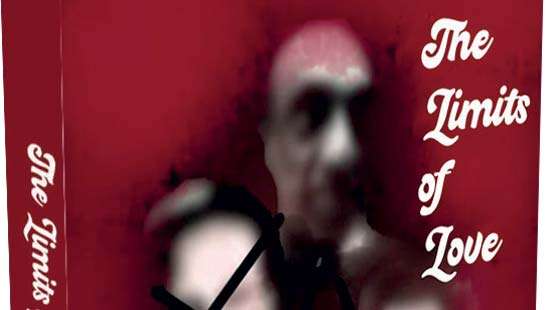


The Limits of Love, the final book of Professor Rajiva Wijesinha's trilogy that began with 'Act of Faith'( 1983), is an underrated great piece of literature.Perhaps the answer to why it is underrated could be found in the long, self-absorbing monologues of the first-person narration, which could be quite taxing for the reader.
Much of that revolves around the mundane details of the life of the narrator, an Oxford-trained university vice chancellor cum country's ambassador to Thailand and Cambodia who had a schoolboy fling with the college rugby captain.These details overlap with the travails of life in an increasingly authoritarian eraof the 80s. Emphasis on details is to build up the plot; but perhaps, Prof Wijesinghe overdoes it.
Past these pages, though, the story dissolves into a one-of-a-kind plot twist. It is refreshingly original, and you don't see it coming. All of a sudden, the book weave into a plot that is worthy of a great movie. By Great, I mean 'Cannes worthy' for a skilful scriptwriter and a director. The plot is such a novelty that I cannot think of a comparison (probably a hybrid of Moonlight and the Battle of Algiers).
The book is titled The Limits of Love, but until those final pages, it appears as a mismatch. But, as you finish reading it, the very meaning of what it is all about drapes around you like a wet coat with melancholy ease. That is a gripping ending to a novel set in one of the most gruesome eras in the not-so-distant past.
Still, it would have been better had that suspense been cultivated from very early on in the novel.
It is a work of fiction - but once you peel away assumed names of characters and perhaps discount some of the salacious details of promiscuity that the narrator talks about so liberally, the story is as real as it could get. In the preface, though, the author stresses that any of the characters in the book is not based on any single actual person except J.R. Jayawardene, who is portrayed as Dicky. One might also add Ranjan Wijeratne (depicted as Ranjan, the party chairman), who cracks down on the Southern uprising with marked brutality. That disclaimer applies to Richard, who sleeps around with boys, and the main narrator, who goes by the name Rajiva.
The book weaves together two main themes. One is the narrative of the progressively worsening authoritarianism of the J.R. Jayawardene regime as it ravages the nation through state thuggery, The Black July, ballot stuffing, gerrymandered electorates and Indian intervention before descending into unrelenting state terrorism.
Protagonists look strikingly similar to the ones in real life. These are Ranil (Premadasa), Anil (Lalith), Ranjan (Ranjan Wijeratne), ASP Ronee Gunaratne ( the main suspect in the abduction of Richard) and Richard himself. The protagonists, just like their real-life political peers,are spinless before the all-powerful Dickey and powerless before the Southern insurgency. Their banality fosters the brutality that increasingly defines their regime.
The other theme is the limit or (is it limitlessness?) of love. There is Richard, Rajiva, who is in a marriage of convenience with Diana(who also doubles as a secondary narrator), and a Canadian diplomat who visits Negombo, which he calls one of the eight best gay towns, and you don't see it coming, the unassuming young gardener of the school by the sea, Krishna.
This second theme is either not fully developed or overshadowed by the all-consuming political theme during much of the book. But, then, it strikes like a thunderbolt. That one-swiftbroad stroke turns the book from a personal yet orthodox account of violence to a refreshingly revisionist narrative of violence.
"Krishna was a tiger, you know," says Rajiva to Diana. "No, I don't mean that sort of Tiger."
He was born in the year of Tiger in the Zodiac calendar.
Rajiva Wijesinha's The Limits of Love, (Neptune Books) is now available in bookstores.
Your email address will not be published. Required fields are marked *
No comments yet. Be the first to comment!